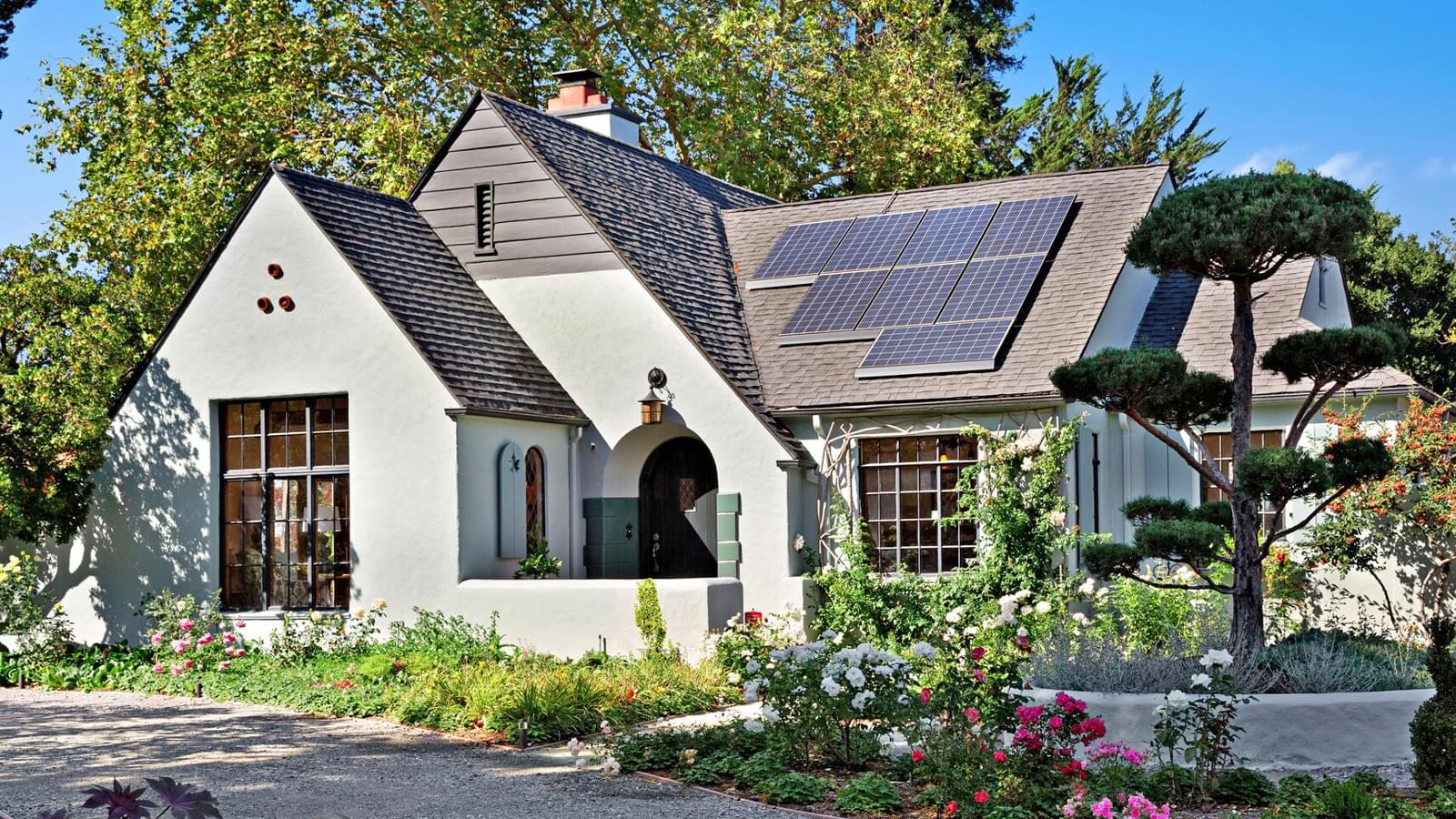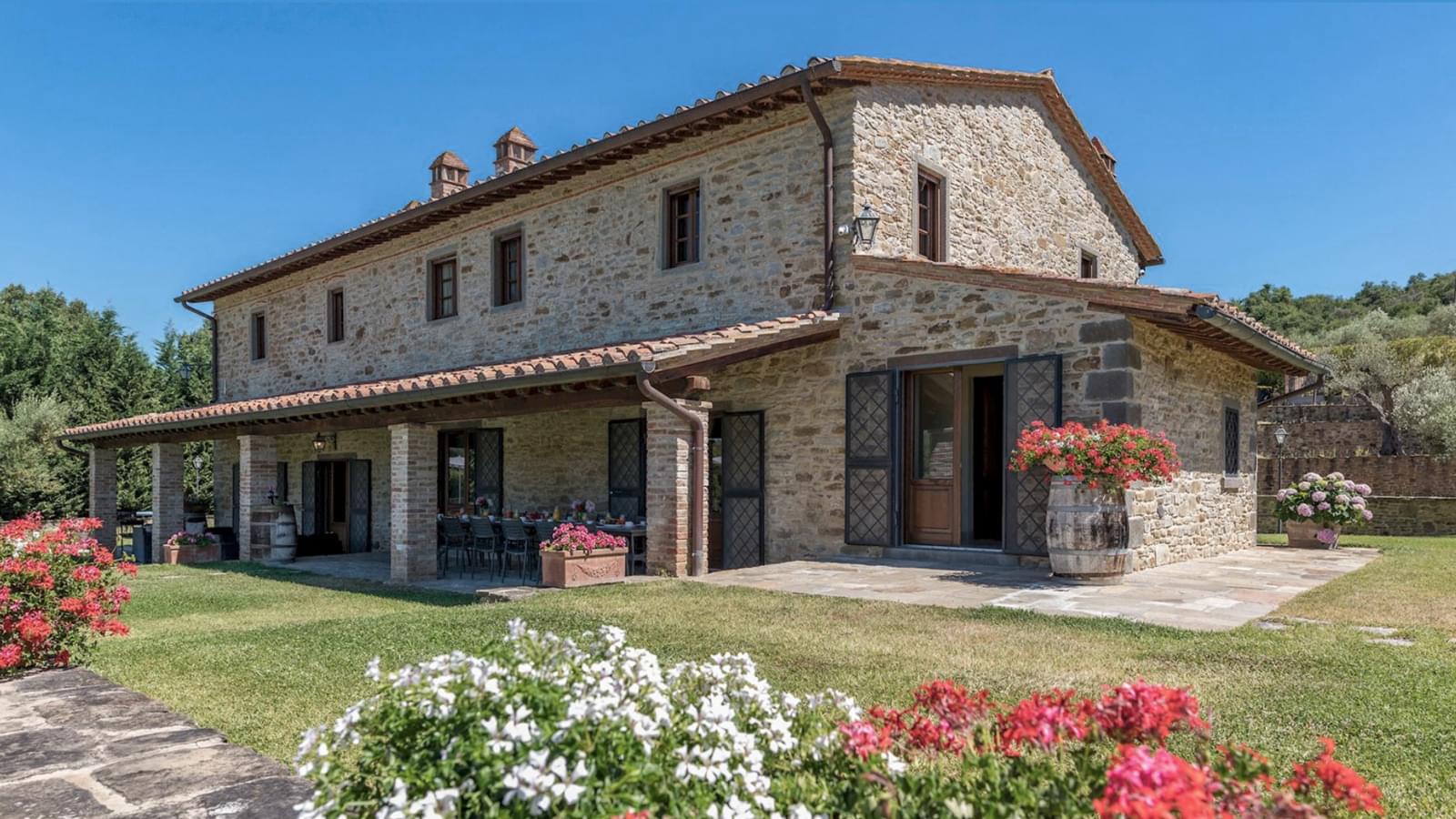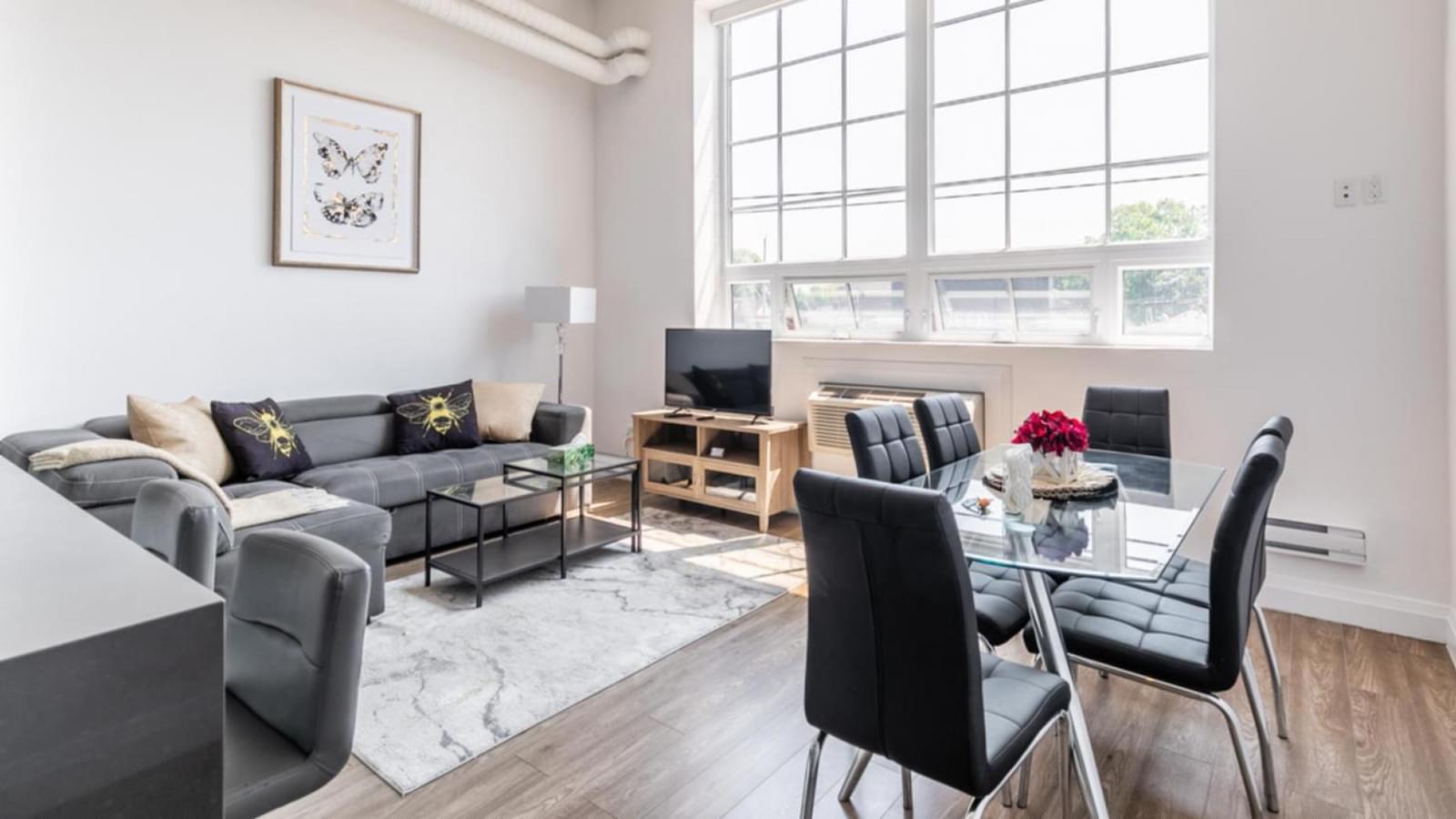Jeju-si Vacation Rentals
Discover a variety of rental homes and villas in Jeju-si for your upcoming trip, whether it's for leisure or work. Indulge in a more customized stay with private vacation home rentals that offer an array of amenities and home features. With a wide selection of available homes, you can find a vacation home that suits your preferences and budget. However you're looking to experience your stay, Homes and Villas by Marriott has your next vacation home waiting.
Types of vacation rentals in Jeju-si
Where to stay in Jeju-si
Show all homesBooking a vacation rental in Jeju-si?
Here are some things to know to support your visit:
Jeju-si Overview
Immerse yourself in the enchanting allure of Jeju-si, the heart of Jeju Island, where the whispers of the "Island of the Gods" beckon you to a realm of volcanic splendor and coastal serenity. This UNESCO World Heritage Site is a tapestry of natural marvels, from the majestic Hallasan, South Korea's tallest mountain and a slumbering giant, to the awe-inspiring Manjanggul Lava Tube, one of the planet's most extensive subterranean wonders.
Imagine waking up in your private home, a sanctuary nestled amidst this island paradise, where you can savor the sunrise in solitude or share a sunset with your loved ones, including your pets in many pet-friendly options. The luxury of space and privacy enhances every moment, whether you're lounging by your own swimming pool or preparing a family meal with the island's fresh produce.
Jeju-si's coastline is a treasure trove of pristine beaches, with Hyeopjae and Hamdeok standing out as jewels with their powdery white sands and crystal-clear azure waters. These idyllic shores invite you to unwind or dive into an array of water sports, all at your own pace.
The island's cultural heartbeat is palpable through the Haenyeo, the legendary female divers whose traditions are interwoven with the sea. Witness their remarkable harvests or explore their heritage at the Haenyeo Museum. Jeju's culinary landscape is equally captivating, with delicacies like Jeonbokjuk (abalone porridge) and succulent black pork that tantalize the palate.
Jeju's mythic past is etched into the landscape with the enigmatic Dol Hareubang statues guarding the island, while the whimsical Jeju Loveland park celebrates the island's contemporary and open-minded spirit. For the adventurers, Jeju-si offers a playground of experiences, from horseback riding across verdant fields to exploring the underwater realms through scuba diving.
Jeju-si is not merely a destination; it's a symphony of experiences that resonate with the soul. It's a place where every path leads to discovery, every breath is a story, and every stay in your private haven is an intimate dance with nature's grandeur. Here, in Jeju-si, memories aren't just made—they're sculpted by the hands of the gods themselves.
Cultural Attractions in Jeju-si
Jeju-si, the capital of Jeju Island in South Korea, is a cultural haven that offers a unique blend of natural beauty and artistic expression. For travelers with a love for the arts, history, and local customs, Jeju-si presents a rich tapestry of experiences that are deeply rooted in the island's heritage and contemporary creativity.
Begin your cultural exploration at the Jeju National Museum, which provides a comprehensive insight into the island's history, from its geological formation to its traditional way of life. The museum's collection includes artifacts from the prehistoric period, folk relics, and fine examples of Jeju's distinctive culture.
Art enthusiasts will find solace in the Jeju Museum of Art, which showcases modern and contemporary art by local and international artists. The museum's serene setting amidst lush greenery complements the artistic experience. Additionally, the Arario Museum in Space is a fascinating venue that combines art with architecture, featuring works by prominent Korean and international artists in a series of interconnected spaces.
Live music is an integral part of Jeju's cultural scene, with various venues hosting performances ranging from traditional Korean music to modern genres. The Jeju Folklore & Natural History Museum not only exhibits the island's natural history but also offers live demonstrations of traditional music and dance, providing a glimpse into the island's vibrant performing arts.
For a deep dive into local customs, the Seongeup Folk Village is an unmissable destination. This well-preserved village offers a living history experience, with thatched-roof houses, Confucian shrines, and stone statues. Visitors can learn about Jeju's unique matriarchal family system, the Haenyeo (female divers), and the island's famous stone walls.
Jeju's art scene extends beyond indoor spaces. The island is dotted with outdoor sculptures and installations, particularly in areas like the Jeju Sculpture Park, which harmoniously blends art with the island's volcanic landscape. The park features works by Korean and international artists, set against the backdrop of Hallasan Mountain and the surrounding forests.
Throughout the year, Jeju-si hosts various cultural festivals that celebrate the island's heritage. The Jeju Fire Festival, held in spring, is a spectacular event that involves setting fire to the dry grass on the hillsides to pray for a good harvest. The Jeju Haenyeo Festival honors the island's female divers with exhibitions, performances, and hands-on experiences.
Jeju-si's cultural offerings are as diverse as its natural wonders, providing travelers with a rich palette of artistic and historical experiences set against the backdrop of the island's stunning landscapes. Whether you're exploring a museum, attending a traditional performance, or wandering through a historic village, Jeju-si is a destination that will captivate your cultural curiosity.
Family friendly activities in Jeju-si
Jeju-si, located on the enchanting island of Jeju in South Korea, is a paradise for families traveling with children. The island's unique volcanic landscape, coupled with its cultural attractions and theme parks, offers a plethora of activities that will captivate the imaginations of young travelers.
Begin your adventure at Hallim Park, where children can explore a variety of themed gardens, two lava caves, and a folk village. The park's Jeju Stone and Bonsai Garden is particularly fascinating for kids, with its whimsical stone figures and miniature trees.
For a magical experience, visit the Jeju Glass Castle, a theme park dedicated to glass sculptures. Children can marvel at the glass art, walk through a mirror maze, and even try their hand at glass blowing to create their own souvenir.
The Teddy Bear Museum is another highlight, showcasing a delightful collection of teddy bears from various eras and countries. Kids will be thrilled to see their favorite stuffed animals in various scenes and costumes, including bears dressed in traditional Korean attire.
A trip to Jeju would not be complete without exploring its natural wonders. Take a family hike up Seongsan Ilchulbong, also known as Sunrise Peak, where you can witness a breathtaking panoramic view of the island. The climb is manageable for children, and the view from the top is a rewarding experience for the whole family.
For a fun-filled day, head to Eco Land Theme Park, where you can ride a train through the Gotjawal forest, explore themed gardens, and enjoy various attractions designed for children. The park's Eco Bridge offers a picturesque spot for family photos.
The Jeju Waterworld is perfect for those looking to make a splash. This water park features indoor and outdoor pools, water slides, and a wave pool, ensuring that kids of all ages will have a blast.
For an educational yet entertaining outing, visit the Jeju National Museum. It offers interactive exhibits that introduce children to the island's history and culture, including a children's experience room where they can engage in hands-on activities.
Lastly, don't miss the chance to indulge in Jeju's unique cuisine. Many restaurants offer kid-friendly dishes, such as the famous Jeju black pork and fresh seafood, in a setting that reflects the island's warm hospitality.
Jeju-si is a destination that promises a memorable family vacation, with its blend of natural beauty, cultural experiences, and attractions specifically tailored for children.
Outdoor activities in Jeju-si
Jeju-si, located on the stunning island of Jeju, South Korea, is a paradise for outdoor enthusiasts and nature lovers. Known for its volcanic landscape, beautiful beaches, and lush countryside, Jeju-si offers a plethora of natural wonders and activities that cater to the adventurous spirit.
One of the island's most iconic features is Hallasan Mountain, a dormant volcano and the highest peak in South Korea. It's a popular hiking destination with trails that lead to the summit and offer breathtaking views of the island and the crater lake at the top. The mountain is also home to a variety of unique flora and fauna, making it a great spot for nature photography and bird-watching.
Jeju's coastline is dotted with impressive geological formations, such as the Jusangjeolli Cliff, where hexagonal rock pillars form a dramatic seascape. The cliffs are a testament to Jeju's volcanic origins and provide a stunning backdrop for photos and contemplation.
For those who love the water, Jeju-si doesn't disappoint. Hyeopjae and Hamdeok Beach are renowned for their clear turquoise waters and white sands, ideal for swimming, sunbathing, and water sports. Diving enthusiasts can explore the underwater world off Jeju's coast, which is rich in marine life and includes dive sites like the Seongsan Ilchulbong tuff cone, another UNESCO World Heritage site.
The island also boasts a network of lava tubes, with Manjanggul Cave being one of the longest and most impressive. Visitors can walk through this subterranean wonder and marvel at the unique rock formations and the giant lava column that stands as a natural monument within.
For a more leisurely outdoor experience, the Jeju Olle Trail is a series of walking paths that meander around the island, taking hikers through small villages, past waterfalls, and along the scenic coastline. These trails offer a great way to experience the local culture and the island's natural beauty at a slower pace.
Jeju-si's natural wonders extend to its botanical gardens and parks, such as Hallim Park and the Spirited Garden, where visitors can enjoy beautifully landscaped gardens, bonsai displays, and peaceful ponds.
Jeju-si is a destination that truly embodies the harmony of nature and adventure. Whether you're summiting Hallasan Mountain, exploring the depths of the ocean, or simply enjoying the tranquility of a coastal walk, Jeju-si offers an outdoor experience that is both invigorating and serene.
Weather in Jeju-si
Jeju-si, located on Jeju Island in South Korea, is renowned for its mild and pleasant climate year-round, thanks to its position in the Korea Strait. The island's weather is significantly influenced by the ocean, which helps to moderate temperature extremes.
Spring, from March to May, is a delightful time to visit Jeju-si. The weather is warm but not hot, with average temperatures ranging from 10°C to 18°C. This season is marked by the beautiful blooming of cherry blossoms and yellow rapeseed flowers, making it a popular time for tourists. The humidity is moderate, and there is less rainfall compared to the summer months.
Summer, from June to August, is warm and humid, with temperatures ranging from 22°C to 30°C. This is the peak tourist season, as visitors flock to the island's beaches and enjoy the lush green landscapes. However, it is also the monsoon season, so expect heavy rainfall, particularly in July. Despite the rain, the ocean breezes can make the high temperatures feel more comfortable.
Autumn, from September to November, is considered by many to be the best time to visit Jeju-si. The weather is warm and sunny with less humidity, and temperatures range from 15°C to 25°C. The rainfall decreases significantly, and the island's foliage turns into vibrant shades of red and yellow. This season is perfect for hiking in Hallasan National Park or exploring the island's volcanic landscapes.
Winter, from December to February, is relatively mild compared to the Korean mainland. Temperatures range from 3°C to 12°C, and while it is cooler, it is still comfortable for sightseeing. Snowfall is rare in Jeju-si, but the higher elevations of Hallasan Mountain may receive some snow, offering picturesque winter scenes.
The most popular weather conditions, with warm temperatures and lower rainfall, are prevalent in the spring and autumn. These seasons provide the best balance for outdoor activities and sightseeing, with the added bonus of spring flowers or autumn leaves. However, Jeju-si's temperate climate makes it a year-round destination, with each season offering its own unique beauty and charm.
Transportation in Jeju-si
Jeju-si, the capital of Jeju Island in South Korea, is a popular destination known for its stunning natural beauty, including the iconic Hallasan Mountain and the serene Jeju Olle walking trails. Travelers typically arrive at Jeju International Airport, which is well-connected to major cities in South Korea and select international destinations. From the airport, visitors can take taxis, airport limousines, or local buses to reach their accommodations or start their island adventure.
For those who prefer to travel by sea, Jeju is also accessible by ferry from various ports on the mainland, such as Mokpo and Busan. The ferry terminals on the island are equipped with bus connections and taxi services to facilitate onward travel.
Getting around Jeju-si and the wider island is convenient with a variety of transportation options. Renting a car is one of the most popular choices, as it offers the flexibility to explore the island's many attractions at your own pace. Car rental agencies are available at the airport and around the city. For those who do not wish to drive, the island's extensive bus system, including the Jeju City Tour Bus, provides a reliable and cost-effective way to navigate the main sights.
Taxis are also a common mode of transportation in Jeju-si, with the option of hiring a taxi for a full day tour. This can be a good choice for those who want the convenience of a car without the responsibility of driving. Additionally, ride-sharing services are available, offering another convenient option for travelers.
Jeju-si itself is moderately walkable, especially in areas like the Jeju City Downtown and the coastal promenade. Many shops, restaurants, and cultural sites are within walking distance in these areas. However, to fully experience the island's diverse attractions, such as the UNESCO-listed Geoparks, waterfalls, and coastal paths, using motorized transport is advisable.
For the eco-conscious traveler, bicycles can be rented to explore the city and its surroundings. Jeju's relatively flat terrain in certain areas makes it suitable for cycling, and there are designated bike paths in some parts of the island.
In conclusion, Jeju-si offers a range of transportation options suitable for all types of travelers. Whether you prefer the independence of a rental car, the ease of public buses, or the simplicity of walking, Jeju is an accessible destination that promises an unforgettable experience.



